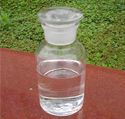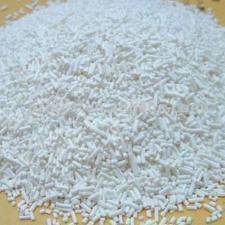Products
 News
NewsAdditives in Snack Food
Snacks, almost every child likes to eat. Recently, a survey gave parents a reminder. Nonprofit “Iearth” released a "Chinese 9 Urban Children Intake of Food Additive Survey Report" shows: There are nine snacks which children love eating containing additives most. The survey was conducted in Beijing, Shanghai, Xi'an and other cities in primary and secondary schools, a total of nearly 20,000 children to participate.
According to the report, 1/10 children eat snacks additive more than three times a day, 6% of children drink more than three bottles of drink per day (not including water and homemade tea). Children eat ice cream every day during the summer, is as high as 26%.
The survey also for 33 categories of 489 kinds of food ingredients and food additives contained sampling statistics. Iearth food safety project consultant, the former department of food science and engineering, Nanchang university professor Shanshan Peng said, instant noodles, milk beverage, potato chips, ice cream, biscuits and other foods contain the most additives.
Instant noodles: a bag of instant noodles can have up to 25 kinds of food additives, common have monosodium glutamate, caramel color, citric acid, TBHQ, etc. Long-term edible contains citric acid products; children are likely to lead to hypocalcemia.
Ham sausage: contain additives, including sodium nitrite, potassium sorbate, etc. With sodium nitrite may generate carcinogenic nitrosamines in the body.
Candied fruit: contains additives such as citric acid, potassium sorbate, sodium benzoate. Which sodium benzoate will destroy the vitamin B1, sodium benzoate and affect children's absorption of calcium.
Jelly: potassium sorbate, citric acid and the most common to use additive such as carrageenan. Excessive intake of potassium sorbate will lead to an anaphylactic reaction, and affect the child to the absorption of calcium.
Ice cream: artificial essence, thickening agent, the most commonly used additives including synthetic pigment. And some artificial colors, foreign regulations cannot be used for food.
Cookies: contain additives, including sodium metabisulfite, citric acid, sorbitol. A large amount of sodium metabisulfite can damage cells, biological toxicity.
Milk tea: contains additives including potassium sorbate , sodium hexametaphosphate SHMP, etc. The latter will cause excessive calcium metabolism disorders.
Chewing gum: may contain aspartame, sorbitol, citric acid and other additives. Too much sorbitol can cause diarrhea.
Potato chips: may contain additives including monosodium glutamate, 5-guanosine monophosphate disodium, etc.
In addition, the survey also found that regular intake of food in children, the use of sweetener aspartame or acesulfame lot. And these two kinds of additives have also been reported related to a variety of adverse reactions. The expert reminds, allergies, asthma; parents of children with ADHD, particular attention should be paid to often eat food, because some food additive might aggravate the symptoms.
By the Chinese center for disease control and prevention nutrition and food safety Songming Du associate researcher said, not all of the snacks are bad for children. Might as well eat snacks points. For instance, can often eat snacks include: whole-grain crackers, nutrition cereal, vegetable, fruit, dried fruit, cheese, peanut butter, yogurt, homemade bread, etc. Can eat 2-3 times a week are: cookies, ice cream, hawthorn tablets, egg roll, pudding, animal crackers, oat rolls, seaweed, since the juice, etc.; Only occasionally eat: candy, chocolate, potato chips, potato chips, corn chips, cotton candy, scones, preserved fruit, shrimp, carbonated drinks, etc. And instant noodles, sausages, jelly, instant milk tea, don't eat is the best.






